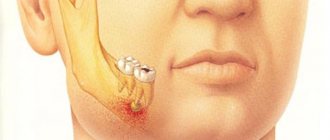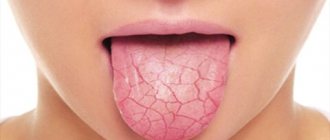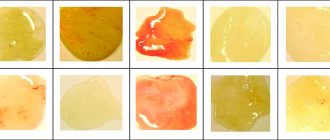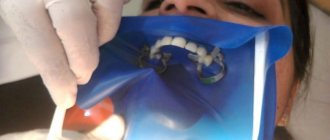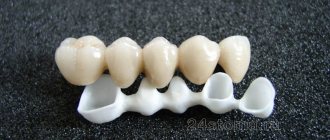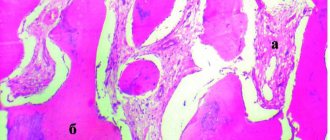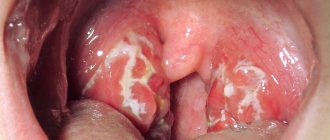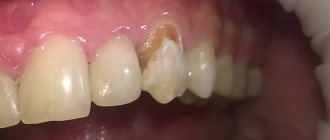The coronavirus infection has caused a lot of fear and anxiety. People were worried about their lives and health – both their own and those of their loved ones. Psychologists say that since the beginning of the pandemic, the number of depression and neurotic disorders has increased. Now that many have already recovered from “corona,” a new one has been added to the listed problems. It turned out that some patients experience olfactory and taste hallucinations after coronavirus.
To make an appointment, call the number 8(969)060-93-93.
About taste and smell
The perception of smell and taste are closely related. This is an evolutionarily determined feature of the human body. The smell helps to determine whether a product is edible or not. Moreover, if sour, sweet, bitter or salty can be identified by taste without the participation of smell, then recognition of complex information, for example, distinguishing between strawberries and raspberries, is possible only with the simultaneous analysis of smell and taste.
Information from the olfactory cells in the nose and the papillae on the tongue enters one part of the brain, where it is integrated and interpreted in a certain way. Since one part of the central nervous system is responsible for processing data about smells and tastes, when this part is damaged, combined hallucinations and changes in perception are often observed.
Diagnostics
If an atypical taste is occasionally or constantly felt in the mouth, consultation with a gastroenterologist is required. The symptom is caused by various reasons, therefore, before laboratory and instrumental examination, you should carefully collect anamnesis and accompanying complaints. The greatest diagnostic value is:
- Blood tests
. A standard blood chemistry test reveals the accumulation of ammonia and ketone bodies, which often cause an unpleasant taste in the mouth. Clinical analysis can detect a decrease in hemoglobin, changes in the size and shape of red blood cells, which is characteristic of anemia. If necessary, toxicological analysis is carried out. - Hormonal profile
. If patients complain of a sweetish sensation in the mouth, fasting sugar levels are measured. The results of an oral glucose tolerance test are indicative. To clarify the form of diabetes, the concentration of insulin and C-peptide is taken into account. If glucose levels are normal, it is recommended to determine the level of thyroid hormones. - ENT examination
. During the study, the condition of the mouth, throat, and nasal passages is examined. Frequent findings are signs of chronic inflammation, purulent or whitish deposits on the mucous membrane. Bloody crusts are sometimes found in the nose. If carious teeth or bleeding gums are detected, a person is referred to a dentist. - Endoscopy
. The causes of unusual taste sensations, which are combined with abdominal pain and painful heartburn, are diagnosed using FGDS. During endoscopy, inflammatory and destructive processes in the gastric mucosa, insufficiency of the cardiac sphincter with the flow of acidic contents into the esophagus are visualized. - X-ray imaging
. To exclude ENT causes of a persistent unpleasant taste in the mouth, an x-ray of the paranasal sinuses is performed. Excretory urography is indicated for patients with swelling, lower back pain and other signs of kidney damage. To study the condition of the intestines, a barium passage x-ray is prescribed. - Additional methods
. In women, levels of sex hormones must be examined; in young patients, the level of human chorionic gonadotropin is additionally assessed to confirm or exclude pregnancy. If lung cancer is suspected, especially in men with a long history of smoking, bronchoscopy with collection of material for cytomorphological analysis is required.
If you have an unpleasant taste in your mouth, it is important to maintain oral hygiene
About hallucinations
Gustatory hallucinations are false sensations of taste. Appear regardless of food intake. A person can feel the sickly sweet taste of ordinary tap water, feel that any food “tastes” burnt, unbearably bitter or astringent. A person does not know how to get rid of constant unpleasant sensations. The inability to distinguish the taste of food and strange signals from the sensory organs lead to a decrease or loss of appetite.
Olfactory hallucinations after coronavirus usually occur simultaneously with taste ones. They often come to the fore. They can persist for several days in a row, become unbearable, and cause nausea. The two listed types of hallucinations, combined with a weakening of the body after Covid, worsen the condition of the nervous system and slow down recovery.
Help before diagnosis
In most cases, the following help to get rid of the symptom:
- keeping the oral cavity clean;
- regular and balanced nutrition;
- cessation of smoking, alcohol abuse;
- drink enough fluid during the day;
- moderate activity after meals.
You can temporarily remove the taste by thoroughly brushing your teeth, rinsing your mouth with water and lemon juice or baking soda, chewing gum, or special mouth fresheners.
What are they complaining about?
Theoretically, false perceptual cues can be pleasant, neutral, or aversive. But in practice, people much more often complain about unpleasant, difficult to bear or unbearable sensations. The most common variants are the repulsive sweetish taste and disgusting smell of fish.
Other possible complaints include combinations of burning, acetone and burnt onions, tobacco smoke, a rotten, “dead” feeling. Some people experience not non-existent, but altered tastes and smells; such conditions are called dysgeusia and parosmia.
Physiological reasons
It is not always sour in the mouth if there are disorders in the human body. A common cause of discomfort is insufficient oral care. Bacteria in dental plaque produce acids that destroy tooth enamel and cause the feeling of sour saliva. The unpleasant sign will disappear after proper teeth cleaning.
The symptom may also occur after consuming certain types of foods: milk or sweets. Pathogenic flora in the oral cavity is activated due to the intake of food rich in carbohydrates. In this case, it is possible to eliminate discomfort if you adjust your diet or thoroughly clean your teeth of product residues.
Those people who are accustomed to overeating often suffer from the problem. Because of this, their sphincter, through which food enters the stomach, is impaired. The contents of the stomach along with hydrochloric acid are thrown back.
Acidified saliva also appears after excessive consumption of fried and fatty foods. They disrupt the functioning of the gastrointestinal tract and provoke inflammation in the digestive system. The main signs of inflammation of the gastrointestinal tract are bitterness and acidity in the mouth. In this case, the person needs to immediately contact the clinic to avoid complications of the underlying disease.
A sour taste in the mouth is often observed in people who wear metal structures in the mouth: piercings, iron crowns. The sensation occurs as a result of metal oxidation under the influence of saliva. In this case, a dentist will help a person cope with discomfort.
Another reason for a sour taste in the mouth in women is pregnancy. After conceiving a child, girls' hormonal levels change. This leads not only to changes in appearance, but also to the appearance of a foreign taste in the mouth. The symptom is associated with activation of the salivary glands, exacerbation of chronic ENT diseases or pathologies of the digestive tract.
Acid saliva is a common symptom that appears during pregnancy.
Increased acidity in the mouth, which occurs due to physiological reasons, is rarely accompanied by other unpleasant symptoms. The taste disappears immediately after eliminating the provoking factors and does not require drug treatment.
Connection with COVID-19
Coronavirus affects not only the respiratory organs, but also other body systems, in particular the central nervous system. The neurotropic effect of the virus explains the damage to the center responsible for the perception of taste and olfactory sensations. Violations are detected in every fourth person who has recovered from coronavirus infection. At risk are patients who, during their illness, suffered from anosmia and agesia (complete or almost complete absence of smells and tastes).
On average, false sensations occur 4-5 months after recovery. Scientists do not yet have enough data to form a scientifically based opinion on this issue, but experts in the field of neurology suggest that the unpleasant effect may be associated with the gradual restoration of sensitive nerve trunks previously damaged by viruses.
Content
- Diagnosis of taste disorders in children
- Causes of taste disorders in children
Taste plays a huge role in a child’s life. They are responsible for the sensitive papillae, which are located on the surface of the tongue.
The gustatory system is closely related to the sense of smell. When a child’s taste is impaired, the sense of smell usually also suffers. Source: Kotova I.B., Kanarkevich O.S. Psychology of taste and perception // Humanization of education
By the time of birth, the baby’s peripheral part of the taste analyzer is already well developed. A newborn's taste buds are located on a wider surface than those of an adult. In addition to the tongue and the posterior wall of the nasopharynx, they are located on the inner surface of the cheeks, hard palate, and mucous membrane of the lips. A baby has a higher threshold of taste sensations than an adult. When introducing unfamiliar food, a child may refuse to eat due to unusual sensations. At the age of two months, children already distinguish 4 basic tastes, and a three-month-old baby is able to distinguish the concentrations of taste stimuli. As children grow, they learn to analyze nuances of taste more subtly.
About nerve restoration in simple words
Neurologists draw a parallel with the return of sensitivity after prolonged exposure to an uncomfortable position. When a person puts pressure on an arm or leg, they go numb. Then non-existent goosebumps begin to “run” along the limb. And only after this does normal sensitivity return.
The same thing happens with taste and smell. This is just an unpleasant period that needs to be lived through. True, returning to normal in the case of COVID takes much longer. It is impossible to say exactly how much yet due to the small number and short duration of observations. It takes 2 to 5 years to obtain reliable statistical information.
Most Russian researchers agree that symptoms should disappear approximately six months after illness . That is, unpleasant sensations, on average, will last from 1 to 2 months. German doctors agree with this position, but are more inclined to 2 months. Italian scientists are more pessimistic. They believe that features are fully returned after 80 days.
Treatment
Help before diagnosis
Many patients feel relief after rinsing their mouth with water and a small amount of lemon juice or a weak solution of soda. It is important to maintain oral hygiene: brush your teeth thoroughly 2 times a day, rinse your mouth with water after each meal, and use dental floss if necessary. In order not to suffer from bitterness in the morning, you should refrain from fatty foods and smoked foods at dinner.
Pregnant women are advised to eat often, in small portions, so as not to overload the gastrointestinal tract. After eating, you should not take a horizontal position or engage in physical labor. If an unpleasant taste in the mouth is accompanied by dyspeptic disorders, pain or a progressive deterioration of the general condition, it is important to consult a doctor in time to determine why the taste occurs in the mouth.
Conservative therapy
A specific taste occurs in many diseases, so only the main directions of therapy can be identified, and the selection of an individual set of therapeutic measures is carried out by a specialist. When caries is detected, treatment by a dentist is indicated: usually, after the elimination of chronic foci of infection, the unpleasant taste disappears. Most often used in therapeutic regimens:
- Antiseptics
. Regular rinsing of the oral cavity with a solution of chlorhexidine and its analogues ensures moisturizing and cleansing of the mucous membrane, and prevents the proliferation of pathogenic microorganisms. For stomatitis with pain, solutions of local anesthetics are used. - Antacids
. If the symptom is due to hyperacid conditions, modern non-absorbable drugs that quickly reduce acidity are recommended. A course of treatment with antisecretory agents is often required to achieve a lasting effect and healing of mucosal defects. - Choleretic drugs
. In case of biliary pathology, the composition of bile is improved and its release into the duodenum is stimulated, due to which the bitterness disappears. The drugs can be combined with hepatoprotectors to protect the liver from the effects of bile acids. - Antidotes
. Heavy metal poisoning is an indication for the prescription of specific complexones that bind and remove toxic substances from the blood. To speed up detoxification, large volumes of crystalloid solutions are administered intravenously.
What to do
The exact recipe has not yet been found; research in this area continues. According to experts in the field of sensory disorders, training will be useful. It is recommended to inhale essential oils of lemon, clove and rose daily. This will help the brain become familiar with smells again and learn to recognize them, and restoring the sense of smell will help normalize taste sensations.
It is important to maintain peace of mind, eliminate stress and not “work yourself up”, fearing that the changes will remain forever. In the vast majority of cases, everything returns to normal over time. Strong experiences can provoke a deterioration in mental state, and this will have a bad effect on well-being and on the body’s ability to heal itself. If it is difficult to independently cope with feelings about taste hallucinations after Covid, you should seek help from a psychologist or psychotherapist.
general characteristics
A pathological disorder of taste perception is called dysgeusia.
Such a “perversion” of taste sensations can be a sign of the development of neurological, hormonal, mental disorders and other diseases, including those caused by a deficiency of certain substances in the body. If the taste of the products remains unchanged, this diagnosis can be excluded. In this case, we are talking about the temporary persistence of an unusual taste in the mouth, and most often the problem disappears when the cause of its appearance is eliminated.
If the symptom does not go away
Partial restoration of smell and taste is considered as evidence of a favorable prognosis. You need to wait until the process is completed. If the disturbances persist for 2 or more months and do not change over time, you should be examined in detail by a neurologist and otolaryngologist . Hallucinatory phenomena, parosmia and dysgeusia can be provoked not only by COVID, but also by a number of other diseases.
A prolonged period of rehabilitation can be considered as an indication for therapeutic measures to restore peripheral sensory nerves. The therapeutic program includes medications to improve microcirculation, anticholinesterase drugs and vitamin complexes, primarily containing B vitamins.
External factors causing a metallic taste in the mouth
These reasons may be associated both with the influence of external factors and with physiological changes in the body. For example, metal can be felt when drinking certain brands of mineral water enriched with iron ions. Iron can reach your taste buds through untreated tap water passing through worn and rusty pipes. The solution in this situation is to use a high-quality cleaning filter.
The use of aluminum pots and cast iron cauldrons and frying pans may cause a metallic taste to be added to the traditional taste of food, especially if sour foods were cooked in it. In this case, the metal of the kitchen utensil reacts with food acids, salts are formed, and this is what is felt by the one who tastes this food.
Metal crowns can also cause a metallic taste, especially if they were installed a long time ago. Acidic foods can react with the metal ions in your dentures, creating a faint but very unpleasant taste.
Cost of services
| CONSULTATIONS OF SPECIALISTS | |
| Initial consultation with a psychiatrist (60 min.) | 6,000 rub. |
| Repeated consultation | 5,000 rub. |
| Consultation with a psychiatrist-narcologist (60 min.) | 5,000 rub. |
| Consultation with a psychologist | 3,500 rub. |
| Consultation with Gromova E.V. (50 minutes) | 12,000 rub. |
| PSYCHOTHERAPY | |
| Psychotherapy (session) | 7,000 rub. |
| Psychotherapy (5 sessions) | 30,000 rub. |
| Psychotherapy (10 sessions) | 60,000 rub. |
| Group psychotherapy (3-7 people) | 3,500 rub. |
| Psychotherapy session with E.V. Gromova (50 minutes) | 12,000 rub. |
This list does not contain all prices for services provided by our clinic. The full price list can be found on the “Prices” , or by calling: 8(969)060-93-93. Initial consultation is FREE!
Symptoms
Let us consider in more detail the characteristics of the symptom of the disorder depending on the cause that provoked it. A sweet and sour taste in the mouth appears after consuming large amounts of sugar, lactose-containing foods and coffee. Other causes of the symptom include:
- sudden cessation of smoking;
- liver pathologies;
- dental diseases (caries, periodontitis, gingivitis);
- poisoning by toxic substances at work;
- uncontrolled use of certain types of drugs;
- diabetes.
A bitter-sour taste in the mouth is most often associated with dietary errors. It can also appear due to bad habits such as smoking or drinking alcohol.
List of other factors causing discomfort:
- taking antibiotics, allergy medications, NSAIDs, medications for seizures;
- problematic outflow of bile from the body;
- gallbladder diseases;
- liver dysfunction;
- duodenal ulcer;
- gastritis;
- initial stages of diabetes;
- hormonal imbalance (during pregnancy, puberty or menopause);
- chronic anemia.
When taking medications, acid in the mouth will not appear immediately. This requires a long course of drug treatment.
A sour-salty taste occurs with the development of sialodenitis. The problem is associated with inflammation of the salivary glands. It develops independently or as a complication of a prolonged runny nose and other otolaryngological pathologies.
Other causes of symptoms include:
- abuse of carbonated drinks or coffee;
- dehydration of the body;
- uncontrolled consumption of alcoholic beverages;
- damage to the sinuses;
- poor nutrition.
Is it possible to ignore
Not paying attention is not the best solution. Quite a lot of time passes between illness and the occurrence of coronavirus infection. In such circumstances, it is difficult to say unequivocally that hallucinations are a consequence of infection. Most often, hallucinatory manifestations are provoked by cerebral damage against the background of cerebral circulation disorders, tumors, traumatic brain injuries and inflammatory pathologies of the central nervous system.
In addition, this symptom can be observed in schizophrenia, epilepsy, psychoses of various etiologies, exogenous and endogenous intoxications, and taking potent medications. Sometimes the cause is damage to the nasal mucosa, dental diseases and diseases of the digestive system. For your own peace of mind, it is better to exclude all other causes of hallucinations, and only then begin to restore your sense of smell and taste according to the schemes proposed for post-Covid syndrome.
You can make an appointment by phone 8(969)060-93-93.
When to see a doctor?
Eliminating the cause of the development of a symptom most often completely eliminates all its manifestations, so it is important to consult a doctor in a timely manner (Table 1).
Table 1. Taste in the mouth: when should you seek medical help?
| Type of taste in the mouth | Reasons to see a doctor |
| Taste Blood | If the symptom is not associated with accidental damage to the oral mucosa, you should begin the examination with a trip to the dentist. If necessary, the specialist will refer you to other doctors for consultation. |
| Metallic taste | You need to undergo examination in the toxicology department if the taste appears after poisoning with chemical agents. It is also important to consult a doctor if you suspect bleeding of unknown location or galvanism. |
| Bitter taste | If bitterness in the mouth persists for several days, and is also accompanied by the appearance of plaque, nausea or vomiting, you should make an appointment with a gastroenterologist. This is probably how the body “signals” about disturbances in the gastrointestinal tract. |
| Bitter taste | If your taste changes regularly without connection with the amount of sweets in your diet, you should consult a therapist or endocrinologist. |
| Taste of acetone | You should definitely see an endocrinologist if the symptom occurs due to diabetes. When following a low-carbohydrate diet, it is also important to choose a new diet from a nutritionist. |
